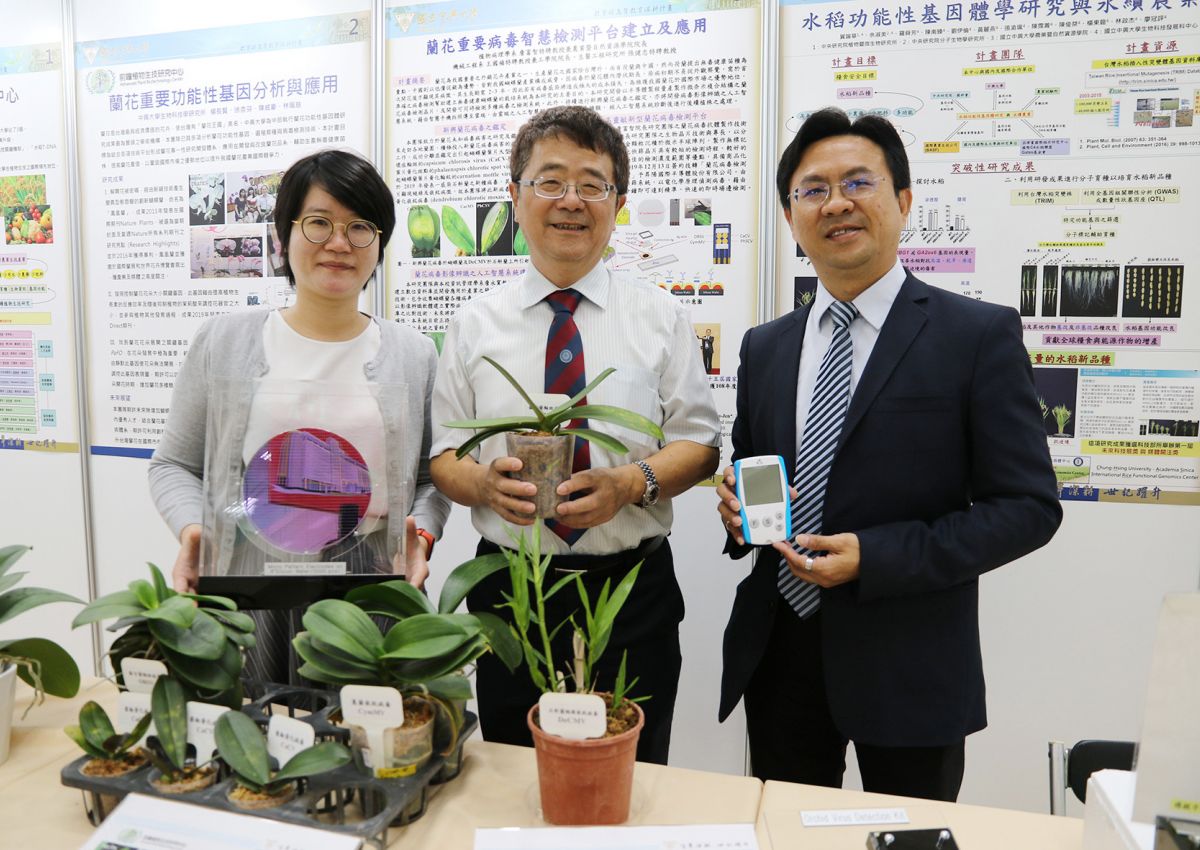2020-12-16
NCHU and Phoenix Silicon International Corporation Cooperate to Develop a Label Free Rapid Detection Kit for Orchid Virus Detection

The orchid virus can be rapidly detected in 30 minutes! The research team comprising Prof. Fuh-Jyh Jan, Dean of College of Agriculture and Natural Resources and Dr. Gou-Jen Wang, Dean of College of Engineering, National Chung Hsing University have collaborated with Phoenix Silicon International Corporation and successfully developed the "Label Free Orchid Virus Rapid Detection Kit", which can achieve the accurate, fast and real-time detection on-site less than 30 minutes. It is now enatering the mass production stage, because the sample kits are expected to be available for use beginning in May 2021 to provide the request from the orchid industry which will in turn help improve the export competitiveness of Taiwan orchid industry.
Dr. Fuh-Jyh Jan said that phalaenopsis orchid is one of most important export flowers in Taiwan. Phalaenopsis has a growth period of 2 to 3 years, yet it is easily infected by numerous viruses. Infection of viruses on the phalaenopsis has become quite problematic to the Phalaenopsis industry which prompts the urgent needs of overcoming the orchid viral malady. To date, more than 50 viruses are reported to infect orchids. Among them, four most common orchid viruses including, odontoglossum ringspot virus (ORSV), cymbidium mosaic virus (CymMV), capsicum chlorosis virus (CaCV), and phalaenopsis chlorotic spot virus (PhCSV, also known as basella rugose mosaic virus, BaRMV), cause most serious impacts. Therefore, it is essential to develop a detection kit that can detect the orchid viruses easily, quickly and with high sensitivity in order to maintain the dominant position of Taiwan orchids in the international market. Fuh-Jyh Jan’s team has survayed various orchid gardens for more than ten years, participated actively in the novel orchid virus identification, and cooperated with the team in the Department of Management Information Systems led by Prof. Yung-Kuan Chan, who applies the artificial intelligence systems to establish a digital database and develop the intelligent virus disease detection for the orchids.
This label free rapid detection system includes two products: one is a disposable fast screening chip, and the other is a reader that provides the function of reading and storing the results. It provides the users with the real-time measurements on the farm site and combines with the Bluetooth function to transmit the test results to the cloud which offers the users the convenient inspection and analysis of the test results.
This chip greatly shortens the test time and alleviates the need for the professional laboratory technicians. In addition, with the excellent manufacturing level of the semiconductor industry, the chip can provide detection sensitivity and specificity to match up with the commonly used products in the market. The cost of the chip is relatively low, which will help improve the quality management of Taiwan orchid industry and the competitiveness of flower export.
In the future, Phoenix Silicon International Corporation will continue to work with Prof. Fuh-Jyh Jan to develop the rapid screening and detection system for other crops, and in other product related issues such as the food safety and water quality management for agriculture, animal husbandry and aquaculture by providing the relevant businesses with the convenient and rapid establishment of the real-time test and quality management of their products.
